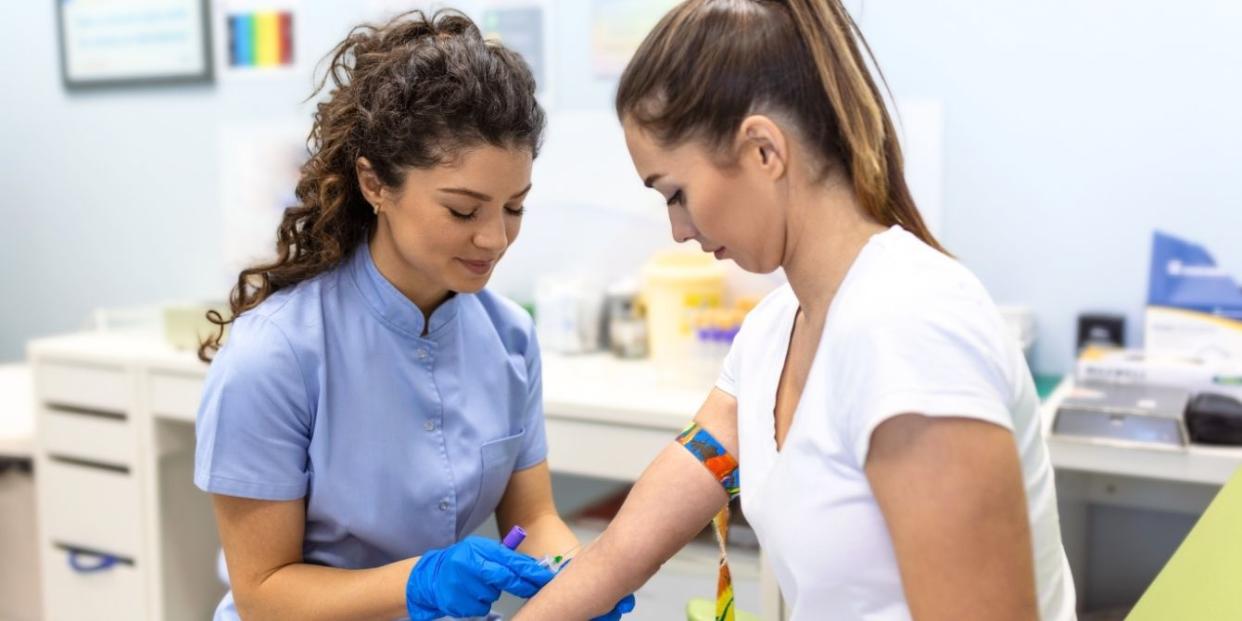Survey finds nearly half of women are skipping or delaying health screenings

A new Gallup survey found that an estimated 72 million women in the United States have skipped or delayed a recommended health screening. The survey, conducted for medical technology company Hologic, found that despite the fact that 90% of women acknowledge how important it is to get regular health screenings, more than 40% of them have skipped or delayed a test their doctor recommended.
The survey showed how hard it is for women to prioritize their own health. Over 60% of women who participated in the survey said they had a hard time making their own health a priority. This was especially an issue for younger women who participated — 74% of women who belong to Gen Z and 70% of millennial women said they struggled to prioritize their health, compared to 52% of Baby Boomers and 39% of women from the Silent Generation.
The women in the survey who said they struggle to put their own health first cited many relatable things, like caring for other family members first and taking care of their work responsibilities and other pressing matters, as reasons why they were putting off important healthcare. Dr. Leana Wen, a CNN wellness expert, said that’s consistent with what she’s seen personally with her own patients.
“Unfortunately, too many women focus on their health only after they have been diagnosed with a chronic illness,” she said. “Our society places too little emphasis on prevention, and there are many barriers in the way of people obtaining preventive care.”
But Dr. Wen said it’s important for women — especially young ones — to get the health screenings their doctors recommend, when they recommend them. This is because cancer rates among younger patients have been on the rise for a number of years, pushing doctors to recommend important preventative screenings, like tests for breast and colorectal cancers, to younger ages.
“Early treatment is key to improving survival rates, and that hinges on early diagnosis. This is why screenings are so important. Cancer screenings are conducted before people develop symptoms,” Dr. Wen said. “There is a disturbing global trend of a rise in early-onset cancers, which is defined as cancer cases diagnosed in people younger than 50. Between 1990 and 2019, early-onset cancers increased by 79%. In the US, while people older than 50 have experienced a drop in overall cancer rates between 1995 and 2020, the cancer incidence has increased in people younger than 50.”
She called the trend in younger people skipping or delaying screenings “distressing.” She added, “According to the survey, 41% of US women delayed or skipped screenings for breast cancer, 35% for cervical cancer and 33% for colorectal cancers.”
Recently, recommendations for screenings for those cancers have changed. Currently, women should start getting screened:
For breast cancer every other year beginning at age 40.
For cervical cancer every three years from ages 21-29, and every five years from age 30 onward.
For colon cancer beginning at age 45.
It’s important to note that these recommendations apply to women of average risk of developing these cancers. If you have a family or personal history or are otherwise high risk, talk to your doctor about whether you should start screening earlier or be screened more frequently.

 Yahoo News
Yahoo News 
